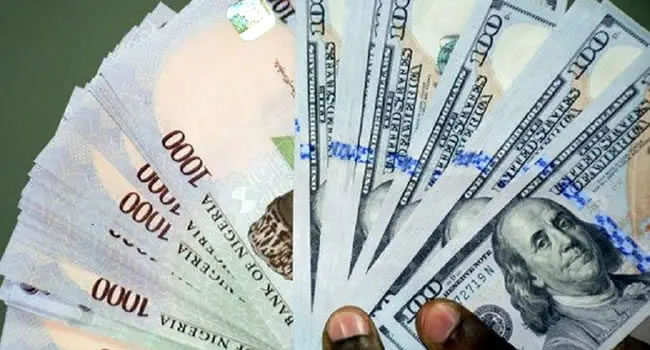The Central Bank of Nigeria (CBN) plan to clear the foreign Exchange (FX) backlog in the next two weeks will restore confidence in the economy, according to analysts who described the move as welcome development.
Folashodun Adebisi Shonubi, CBN’s acting governor, said on Monday that clearing the FX backlog is something the apex bank has been discussing for a while, “and we expect that we will clear it in the next one or two weeks,” he said.
He said that that means that the obligation overhang people keep talking about will not be there.
All the analysts polled by BusinessDay on Wednesday unanimously said that the move will restore confidence in the economy and help stabilise the naira.
“If successful, it will be an important means of restoring confidence. At the very least, it will help reduce the demand at the parallel market in the near-term,” Razia Khan, managing director, Chief Economist, Africa and Middle East Global Research, Standard Chartered Bank, said.
She said, however, it does create a new USD obligation to banks – eventually, repayment will have to come from CBN FX reserves.
“Nonetheless, the benefits of near-term NGN stabilisation likely outweigh the costs. The settlement default by CBN from earlier months’ forward transactions is not good for confidence, and it has been a probable factor in the parallel market overshooting,” Khan said in an emailed response to BusinessDay.
Ayo Teriba, an economist and Chief Executive Officer of Economic Associates, said, “Backlog means two things (a supply shortfall and excess demand). A supply shortfall is the same as excess demand, meaning the demand for FX is bigger than supply.”
He said the CBN plans to clear the backlog in two weeks, which means it is raising supply. One of the measures of the excess demand is the backlog; it is the forex that bank or companies should have received but has not received, and because they haven’t received they are under pressure to look for forex elsewhere. “If the government pays the backlog, the pressure eases and the naira stabilises,” Teriba said.
For Ayodeji Ebo, managing director/CBO, Optimus by Afrinvest, “this is a welcome development; however, the strategy on how this will be achieved was not clearly stated.”
He said if this is done, it will boost confidence in the economy and close the gap between official and parallel markets.
“This is very important. To complement this move, the 41 items in the exclusive list should be eradicated to shift demand back to the official market. For instance, traders in Eurobonds would create liquidity in the foreign exchange market because of their trades,” he said.
Muda Yusuf, chief executive officer of the Centre for the Promotion of Private Enterprise, said the CBN move will help restore confidence in the foreign exchange market and the economy in general.
He noted that the biggest challenge in the economy is confidence. “We need to clear the backlog for investors to bring in money. It will help to boost the level of confidence and reduce speculative activities. It is a very significant thing that needs to happen. There will be more stability. It is a good development,” he said.
Olusegun, the analyst at Polaris Bank Limited, said if the plan materialises as planned, it will trigger a Naira gain against the dollar and increase Investors’ confidence in the country.
According to him, banks will also have more room to pay down on trade line obligations or replenish their offshore positions as most of those forwards have been converted to spot by banks using their offshore position or trade lines.
Naira on Wednesday weakened to N925 per dollar at the unofficial foreign exchange (FX) market, known as the parallel market.
This showed 0.87 per cent depreciation over N917/$1 traded in the last five days at the same market, also called the black market.
SOURCE: BusinessDay
